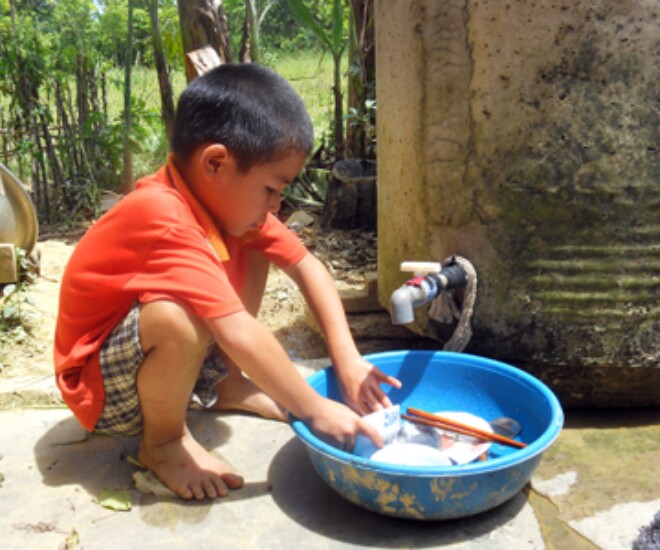Returning home, I was shocked at the transformation of my son. Gone was the plump, fair-skinned boy I had left behind. He was now thinner, darker, and visibly less healthy-looking. I initially assumed that he hadn’t adjusted well to life with my in-laws, and my heart ached for him. However, when I learned the truth, I was deeply grateful to my brother and sister-in-law.

Illustrative image
It turned out that during the summer month, my son had been subjected to a rather “harsh” regimen by his uncle and aunt. This didn’t carry a negative connotation, as it entailed my nephew being disciplined in household chores, manual labor, and outdoor activities—experiences he had never encountered while living with his parents in the city.
As my firstborn, he had always been doted on and rarely asked to lift a finger. Moreover, we had a live-in helper who took care of most of the housework. Despite the noticeable change in his physical appearance, I witnessed a newfound maturity in my son. He had become more agile, proactive, and adept at handling various tasks, shedding his former whiny and weak demeanor.
I was overjoyed by these positive changes! I never expected my sister-in-law to be such an effective disciplinarian. Upon inquiring further, I was truly impressed by her parenting approach. She had been employing this method with her own children and kindly offered me this advice: when it comes to raising boys, refrain from excessive pampering, as it may hinder their potential for success. Thus, she advocated for the philosophy of “raising boys in poverty and girls in wealth.”

Illustrative image
I found her strategy compelling and worthy of emulation. Hence, I decided to implement this approach with my son going forward, hoping to mold him into the best version of himself.
Confessions of a grateful mother, hoaihuong92…@gmail.com
In modern society, the adage, “Raise boys in poverty and girls in wealth,” has sparked intriguing discussions and debates. This saying invites contemplation on the impact of different environmental conditions on a child’s development and education.
Some argue that raising boys in a financially challenging environment fosters traits like perseverance and self-reliance. Daily struggles shape their valuable life skills, fostering resilience and a strong character. Conversely, rearing girls in affluence provides a sense of security and protection, shielding them from pressures and hardships.
However, critics of this philosophy contend that it perpetuates gender stereotypes in education. The notion of preparing boys for adversity while shielding girls may promulgate negative preconceptions about gender roles in society. Such preconceptions can influence children’s psychology and perpetuate outdated beliefs about the roles of men and women.
These stereotypes can hinder children’s potential and shape their future perspectives. Parents, regardless of gender, should empower their children to freely explore and develop their true selves. The saying, “Raise boys in poverty and girls in wealth,” warrants careful consideration and should not be blindly followed.
Education is not solely the responsibility of parents but also of society at large. Creating a supportive and encouraging environment for children’s growth will foster their confidence, independence, and positive contributions to the community.



































